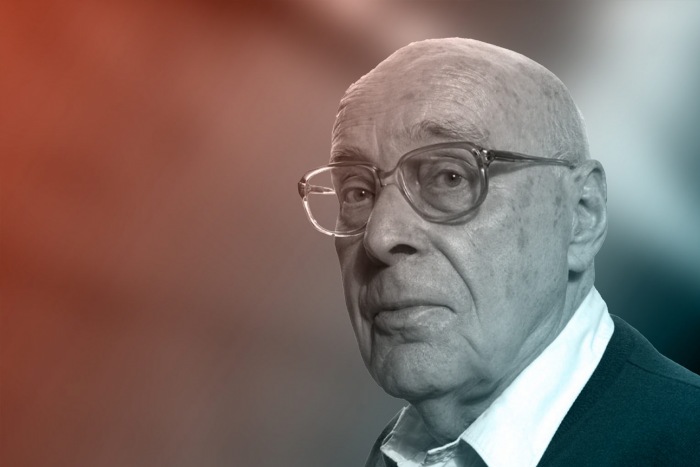Commemorating the death of philosopher Hans Albert
With his "Treatise on Critical Reason", he became one of the most important proponents of Critical Rationalism

albert_1.jpg
© Evelin Frerk / Giordano Bruno Foundation
As announced by his family, the German sociologist, philosopher, with a focus on philosophy of science, Hans Albert (founding advisor of the Giordano Bruno Foundation and namesake of the Hans Albert Institute founded in 2020) passed away today, October 24, 2023, at the age of 102.
Born in Cologne on February 8, 1921, to a student councilor for Latin and history, Albert studied business administration at the University of Cologne, where he completed his doctorate with work on economic criticism and sociology and habilitated in social policy. From 1963 to 1989, he succeeded Eduard Baumgarten, a nephew of Max Weber, as Chair of Sociology and Science Studies at the University of Mannheim.
Alongside Karl Popper, Hans Albert is considered one of the most important proponents of critical rationalism. One of his central contributions is what he called the "Münchhausen Trilemma", which criticizes conventional justification methods. He thus made a central contribution to overcoming dogmatic rationalism with its ideal of certainty, against which he advocated the fallibility of human reason (fallibilism) in all areas of knowledge.
He became internationally known in particular due to the "Positivism Dispute", in which critical rationalists Karl Popper and Hans Albert argued with the two representatives of critical theory, Theodor W. Adorno and Jürgen Habermas. In addition to Hans Albert's most important work "Treatise on Critical Reason" (1968), his most important publications include the "Traktat über rationale Praxis" ("Treatise on Rational Practice", 1978), the "Kritik der reinen Erkenntnislehre" ("Critique of Pure Epistemology", 1987) and the "Kritik der reinen Hermeneutik" ("Critique of Pure Hermeneutics", 1994). His debate with theologian Hans Küng in the 1979 volume "Das Elend der Theologie" ("The Misery of Theology") and his 2008 critique of Pope Benedict XVI's theological positions, "Joseph Ratzingers Rettung des Christentums" ("Joseph Ratzinger's Rescue of Christianity"), caused a stir. His correspondence with the philosopher Paul Feyerabend, with whom he was close friends, published in two volumes in 2008/2009, also met with a strong response.
For many years, Hans Albert was the main scientific advisor to the European Forum Alpbach in Tyrol/Austria, which he shaped programmatically. He gathered many important scientists such as the Nobel Prize winners Friedrich August von Hayek, James Buchanan and Konrad Lorenz and philosophers such as Karl Popper, Imre Lakatos, Paul Feyerabend and Alan Musgrave in the small Tyrolean mountain village for a critical exchange.
Hans Albert held honorary doctorates from the universities of Linz, Athens, Kassel, Graz and Klagenfurt and was an elected member of the Academia Europaea and the Accademia delle Scienze di Torino. His awards include the Ernst Hellmut Vits Prize, the Arthur Burkhardt Prize, the Austrian I. Class Cross of Honour for Science and Art, the Federal Cross of Merit (I. Class) and the Tyrolean Eagle-Order in Gold. On his 99th birthday, the Hans Albert Institute was founded in Berlin and Oberwesel, a think tank for the promotion of critical-rational thinking in politics, economics and society.
To mark Albert's 100th birthday, the institute bearing his name, in collaboration with the Giordano Bruno Foundation, has released the video documentary "Hans Albert – Der Jahrhundertdenker" ("Hans Albert – The Thinker of the Century"), which provides information about the life and work of the renowned philosopher. "Hans was a decisive source of inspiration for the Giordano Bruno Foundation," says gbs chairman Michael Schmidt-Salomon. "Like so many others, I learned from him what it means to think free of dogma and to see criticism as a gift. We will greatly miss Hans, his clarity of thought, his modesty and his humor!"
